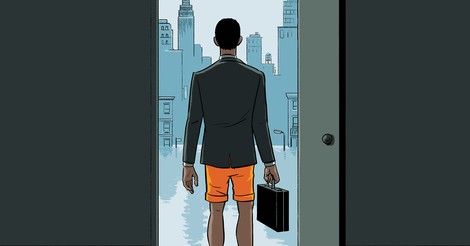Your podcast discovery platform
Curious minds select the most fascinating podcasts from around the world. Discover hand-piqd audio recommendations on your favorite topics.

piqer for: Climate and Environment Global finds Globalization and politics
I'm a freelance journalist, currently based in Madrid. I used to be a News Producer at CNBC in London before, but I thought a little bit more sun might do me good. Now I write for several news organizations, covering a range of topics, from Spanish politics and human rights for Deutsche Welle to climate change for La Marea.
Climate Change Is Now, So Why Do We Keep On Thinking It's In The Future?
Heaven may be able to wait, but the apocalypse is already here.
Ok, I may be exaggerating, but check out the state of things: floods, droughts, super-storms, desertification, plagues, war, famine... Still, we keep thinking that there will be some kind of catastrophe that will usher in the real deal. And, sadly, while it's likely that the worst is still to come, we may never notice its arrival. It will feel, pretty much, like now.
That's what Jon Mooallem thinks. The writer has taken part in a special issue of The New York Times Sunday Magazine dedicated to climate with this article, which comes in two versions: the online one, linked below, and the print one, which I haven't read yet (but will).
It all starts with a piece of fiction. In 2012, San Francisco blogger Burrito Justice imagined a dystopian fantasy in which the Californian city had been mostly flooded, with sea levels rising up to 200 feet (61 meters) by 2072. The blogger created a map, and mused about the lives of people in that future. This scenario has nothing to do with science: it's just an exaggerated joke.
However, the idea got stuck in Mooallem's mind:
"The future is always somebody else’s present — it will very likely feel as authentic, and only as horrific, as our moment does to us. But the present is also somebody else’s future: we are already standing on someone else’s ludicrous map."
The author explores the scenario in which no sudden event (natural or otherwise) officially inaugurates climate change, and how bad conditions will keep on expanding due to a general amnesia about how things were before. The bad side of adaptation. Or, in his own words:
"People are born into this life, and they think it's normal."
After exploring the intersection of climate change and conflict, conservation, healthcare and urban planning (among others), this article has a fresh approach: the crossroads between slow apocalypse and psychology.
Looking forward to reading the paper version of the story!
